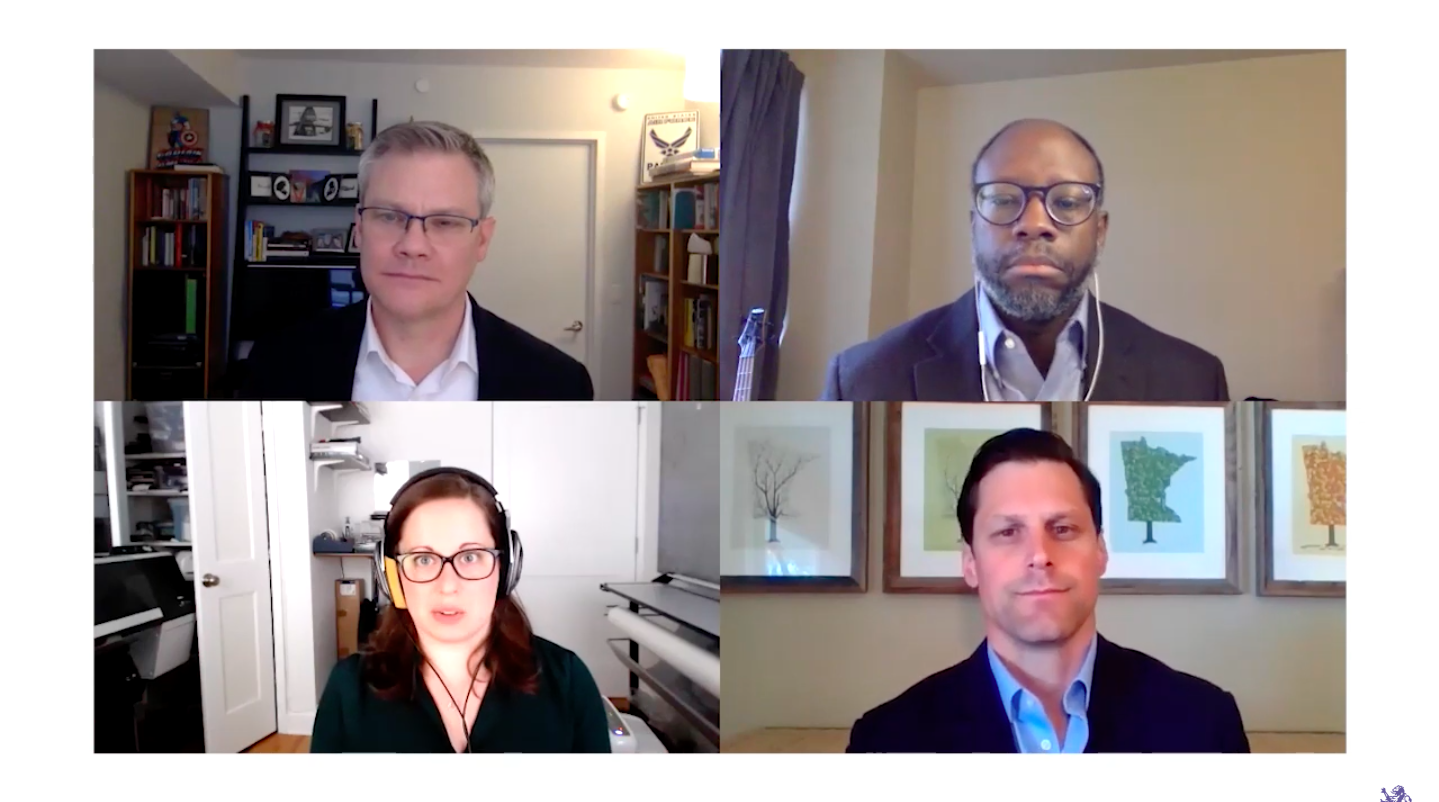How Epidemics Change History: A Four-Part Series
The King’s College's four-part lecture series, titled, “How Epidemics Change History,” looked back at the plagues of the past and discovered lessons that could help guide us through the COVID-19 crisis.

In April, the King’s College launched a four-part lecture series titled, “How Epidemics Change History.” In this series of noonday talks, nearly half of The King’s College faculty explored “ways in which epidemics shape societies, concentrate power in government, shatter assumptions about world order, and drive religious innovation.” The aim was to look back at the plagues of the past and discover lessons that could help guide us through the COVID-19 crisis.
In the first lecture (video recording here), hosted on Thursday, April 9, panelists discussed the Black Death. Dr. Ethan Campbell, associate professor of English and literature, served as moderator and respondent. Dr. Robert Carle, professor of religious and theological studies, shared how the Black Death prepared the way for the Protestant Reformation, touching on Pope Clement VI’s identification of sin as the cause of the plague and John Wycliff’s opposition to the status of clergy. Dr. Steele Brand, assistant professor of history, lectured on liberty and constitutionalism amidst epidemics and war, distinguishing between royal and sacred power and highlighting the life and influence of William of Ockham and John Wycliff. Dr. Henry Bleattler, associate professor of history and the humanities, explained how the Black Death laid the foundations for the Italian Renaissance through conspicuous consumption.
In the second lecture (video recording here), hosted on Thursday, April 16, panelists discussed the political and economic ramifications of modern pandemics. Dr. Paul Mueller, associate professor of economics, served as moderator and respondent. Dr. Joseph Loconte, associate professor of history, presented on how the 1918 influenza crisis set totalitarianism loose, discussing how society became vulnerable to communism, fascism, and eugenics. Dr. David Tubbs, associate professor of politics, presented on the Constitution and crises in public health and safety, advocating for citizens to demand honesty from public officials. Prof. Amity Shlaes, a presidential scholar, presented on law, order, economics, and health panics, and discussed the Spanish Flu and fears about overpopulation in 1970.
In the third lecture (video recording here), hosted on Thursday, April 23, panelists discussed pandemics and the people of God. Dr. Dami Kabiawu, assistant professor of finance, served as moderator and respondent. Dr. Dru Johnson, associate professor of biblical and theological studies, discussed the biblical pattern of plagues in his lecture titled, “Biblical Perspectives on Pandemics.” Dr. Benjamin White, associate professor of biblical studies, lectured on Christians and the plague of Cyprian, suggesting Christians should join forces with the world by following self-quarantine and social distancing mandates. Dr. Mark Hijleh, provost and professor in music, discussed epidemics, music, and the church, sharing clips from influential musical pieces such as Gherardello da Firenze’s “Agnus Dei,” Blind Willie’s “Jesus is Coming Soon,” and Kiandra’s Howarth’s “Mass Via Victrix, Op. 173: V. Agnus Dei.”
The final lecture of the series (video recording here), hosted on April 30, assumed a discussion-based format. President Tim Gibson served as moderator, asking the panelists about life after COVID-19. Prof. Brian Brenberg, executive vice president, took on the economics side of the discussion, explaining the importance of implementing lessons from these last few months as COVID-19 reemerges. Prof. Alissa Wilkinson, associate professor of English and humanities, discussed the effect on the arts—particularly film—and how the industry may adjust to favoring more local artistic productions. Dr. Anthony Bradley, professor of religious studies, discussed the spiritual aspects of this crisis, its effect on charitable giving, and its effect on Generation Z. The panelists concluded that this generation may well become the most resilient generation in recent history because they’ve learned to adapt to crisis.
Gibson ended the Epidemics series praising the scope of the last few weeks’ discussions, “from ancient epidemics, to modern epidemics, to the reaction of God’s people to epidemics, to today and how we can go forward thoughtfully, carefully, prayerfully together.” He continued:
One of the things that brings me so much joy about our community at The King’s College is being able to look at the same topic with different expertise with these colleagues that we all think so highly of. I appreciate you all so much investing your time and energy to describe your perspectives so effectively.




